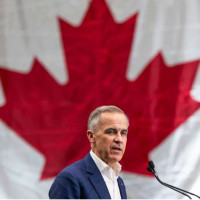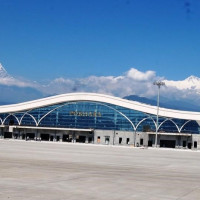- Tuesday, 29 April 2025
Sort Out Fiscal Woes
Nepali economy has seemingly started gaining steam in recent months, but the financial and monetary sectors' challenges persist. Due to the ongoing impact of the Russia-Ukraine war and the complex global economic and political situation, there looms a risk of continued external pressure on the economy. That's what the Acting Governor of the Nepal Rastra Bank (NRB), Dr. Nilam Dhungana Timsina, said as she spoke the other day at the programmes organised to celebrate the 70th anniversary of the NRB. Amid such global and domestic challenges, the central bank is said to have been making earnest efforts to maintain macroeconomic stability.
To promote access to credit for domestic, small, and medium enterprises, the limit for the Regulatory Retail Portfolio (RRP) has been increased from a maximum of Rs. 2 million to a maximum of Rs. 3 million per borrower. Additionally, the Nepal Green Finance Taxonomy, announced by the bank this year, will be used as a guiding framework for issuing green bonds and similar financial instruments, making the banking sector more resilient in managing potential risks. This measure is expected to meaningfully contribute to developing climate disaster-resilient infrastructure as well as to optimally mobilising scarce resources, enabling the country to cope with the adverse impacts of climate change. By enforcing this measure, the apex monetary authority wants the banks and financial institutions (BFIs) to incorporate climate change measures into every investment decision they make.
Likewise, to enhance the efficiency and innovation of the payment system, a regulatory sandbox related to digital banking services will be operated with the support of the International Finance Corporation (IFC). What's more, the bank has made arrangements for Nepali citizens going abroad for various purposes to withdraw foreign currency up to the prescribed limit from their own accounts held with Nepali banks through internet banking, and Quick Response code via international payment cards issued by Nepali banks and national-level payment system operators.
While all these are commendable moves, decisive actions should also be taken to address the deep problems financial and monetary sectors have been contending with. It's understandable that in an economy deeply interconnected with major global economies, any setback in any one of them will ripple across the world's economy. Though little can be done about it from a small economy like ours, we surely can do something concrete to mitigate this vulnerability and cushion our economy against global shocks.
Meanwhile, the improved supply systems, foreign exchange reserves, and remittances have given new momentum to economic activities, but the persistently high inflation continues to eat into the people's income and savings, leaving them with scant disposable income, if at all. Nearly a week ago, news appeared in this daily that hundreds of small-scale industries in the Rupandehi district were facing closure because of problems such as a sharp fall in the demand for finished products, a shortage of electricity and manpower, high bank interest rates, economic challenges, among others.
This seems to be the mirror of what's happening to industries across the nation, with many facing daunting challenges even to stay afloat. This is a serious matter because they are the source of jobs and stable income for millions of our countrymen. Against this backdrop, swelling foreign exchange reserves, though encouraging, have done little to address these challenges. The NRB, through policy measures, must do something about it so that the piled-up money in banks gets into the market, cheering people up.









-original-thumb.jpg)







